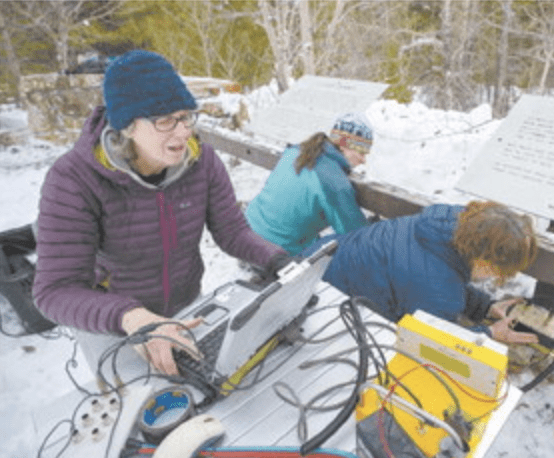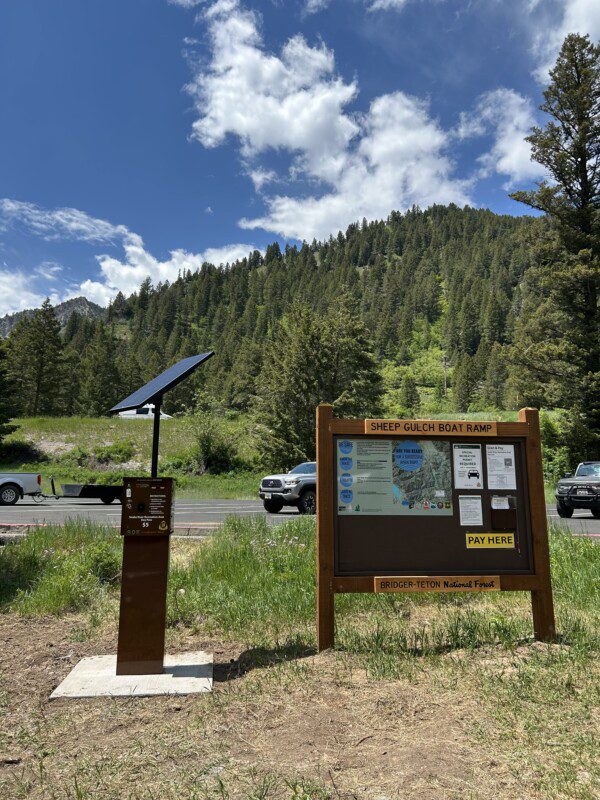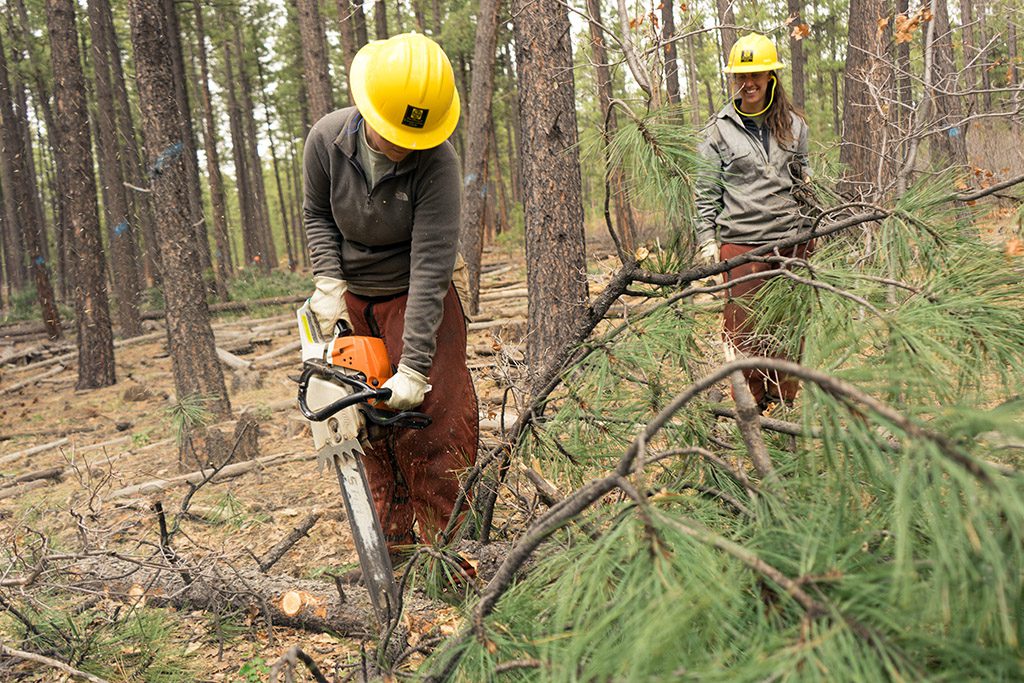In 2022, the Jackson Hole Travel and Tourism Board (JHTTB) awarded its largest amount of funding to a single project to date to Friends of the Bridger-Teton. The $1 million grant, which was more than double our 2021 revenue, was used to grow and expand the group’s innovative Ambassadors for Responsible Recreation program and to spread awareness about responsible recreation. In 2023, JHTTB awarded us an additional $750,000 to continue this important work.
“This funding is an absolute game changer for us,” says Scott Kosiba, Friends’s executive director. “I was advised on multiple occasions to scale down our pitch to a smaller amount and to shoot lower. However, $1 million represents the true scale of the need in Teton County and the true scale of the increase in visitation that we’re facing.” While the Bridger-Teton National Forest cannot track the number of visitors like a national park with official entrance gates can, use of some campgrounds on the forest was at 173 percent in the summer of 2021. In 2021 and 2022, Ambassadors for Responsible Recreation extinguished more than 400 abandoned/escaped campfires, addressed almost as many food storage violations, and engaged face-to-face with thousands of locals and visitors. “This is the new normal on the BTNF and it’s unsustainable without additional support,” Kosiba says.
It is obvious that many wild places and spaces are feeling the effects of changing and increasing use from new residents and visitors. The JHTTB agrees. “The Friends’ proposal to engage with and educate about responsible recreation is exactly the type of project we’re looking to fund now,” says Crista Valentino, executive director of the JHTTB.
Founded in 2011, the JHTTB’s original mission was to build a strong year-round tourism economy for Jackson and Teton County by allocating funds collected from a local lodging tax to efforts and events in the spring and fall shoulder seasons. In late 2021, after years of sustained growth in the local tourism economy, the board announced an evolution of its priorities.“We want to put more emphasis on mitigating the effects of tourism,” Valentino says. “We want to be part of the solution that keeps Jackson Hole the wild and pristine place that we all love. We don’t want a wildfire to come from an abandoned campfire or a bear be euthanized because it got into food at someone’s campsite.”
Because of the JHTTB funding, Friends of the Bridger-Teton is strengthening and tripling the number of Ambassadors in its Ambassadors for Responsible Recreation Program. The funding also allows the nonprofit to collaborate with many local organizations to create social media, print, and online campaigns to engage with visitors before they get to Jackson Hole; re-do its website to focus on responsible recreation; expand its education and engagement efforts to visitors in Jackson Hole to a diversity of touchpoints, from visitor centers to grocery stores and even brew pubs (think coasters with the Leave No Trace ethos of traveling on public lands printed on them); increase face-to-face interactions and conversations with visitors; launch an AM radio station 170.10 that provides real time fire and wildlife updates and general conditions on the forest; provide educational and informational materials in Spanish; and establish donation kiosks at trailheads, among other actions. (The funding also supports winter Ambassadors, including Teton Backcountry Alliance’s successful Backcountry Ski Ambassador program on Teton Pass.)
“What we’re working to address now isn’t something that can be kicked down the road without the loss or degradation of some of the resources that residents value and that visitors come here for,” Kosiba says. “With this funding, we’re able to address the needs of the forest (in Teton County) immediately.”




